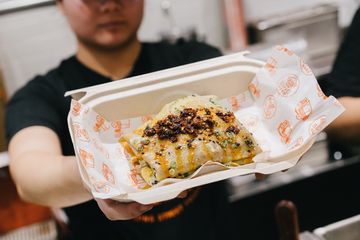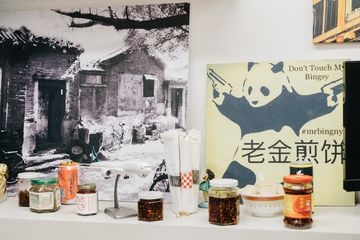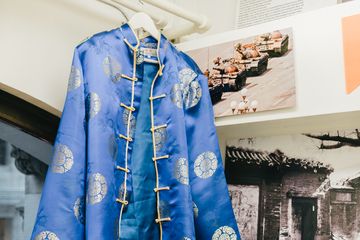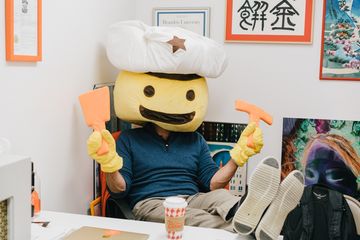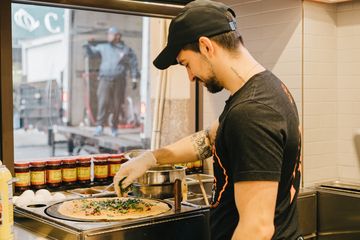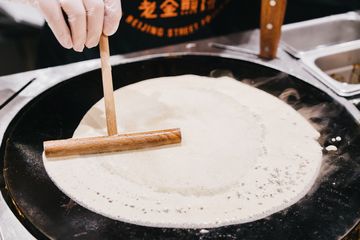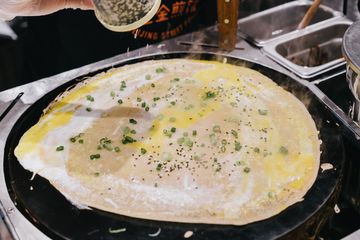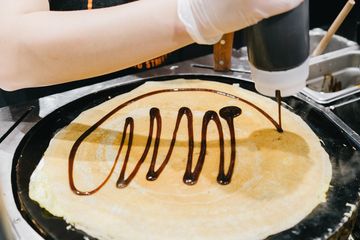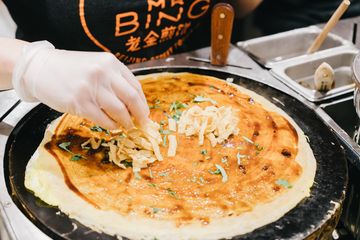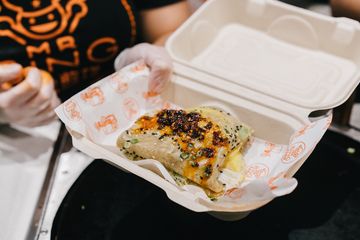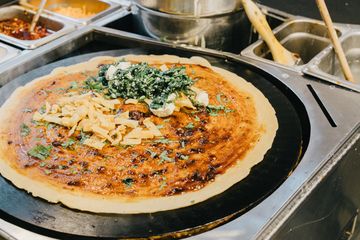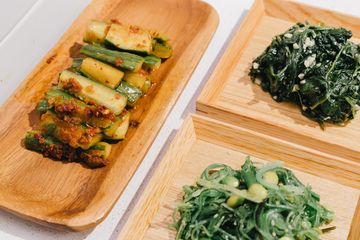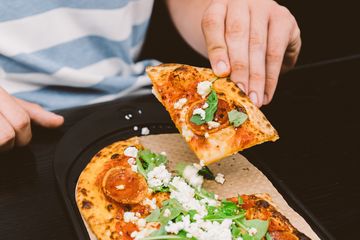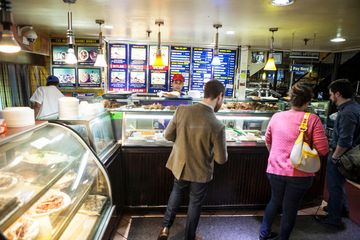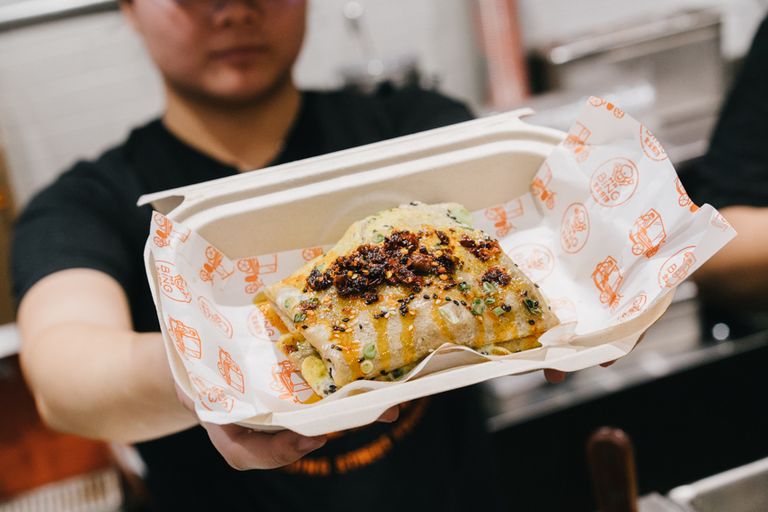
Brian Goldberg’s office is, much like the man himself, creative, cluttered, and absolutely devoted to Chinese culture. Hung on, and stacked against the walls are East Asian movie posters, a photograph by performing artist Zheng Huan, pictures of Brian competing in the 2002 Olympics, a couple of diplomas, and a reproduction of a Ming Dynasty poem by Cau Ting Dong (the original is at his home; reproduction #2 lines the stairs leading up from the restaurant to his office).
Brian speaks in a patter and at such a speed that I could not help but wonder if his veins run with energy drinks instead of blood. He talks me through his life story: Born and raised in New York, he became the first student at Brandeis University to major in Chinese Studies. While there, he studied abroad in Beijing where “every day, before school, I would wake up, and I was hungry for breakfast, and outside my dormitory would be a little old lady on the back of a bicycle cart making bings just like that and just like that,” he tells me, pointing to photographs illustrating just this spectacle.
After college, Brian worked at CNBC in New York while completing his Master’s in East Asian Studies at Columbia. Because of his Mandarin skills, he was transferred to Singapore to report on business news. In Singapore, he got into trading stocks, and moved to Taiwan and then Hong Kong to work in finance. Overall, he lived for some fourteen years in Asia and has even managed to establish permanent residency in Hong Kong.
Towards the end of his time in Hong Kong, Brian decided to give Mr. Bing a shot. He opened two locations there, but found that they simply were not financially feasible. So he packed up, moved back to New York, and started doing pop-up shops and catering around the city. The location in the flower district will be his second brick-and-mortar. (Mr. Bing lived on St. Marks Place for a short period between 2017 and 2018)
So what exactly are bings? Jianbing are a traditional northern Chinese street food made from a mung bean flour crepe topped with scrambled eggs, sesame seeds, scallions, hoisin sauce, chili paste, cilantro, and crunchy wontons. Though traditionally a breakfast food, Mr. Bing is spicing things up to adapt them into an all-day treat by adding the options of various proteins, from locally sourced chicken and beef to spinach and tofu. According to Brian, “It’s like a Chinese crepe folded up into a sandwich, a.k.a. Chinese dosa, a.k.a. Chines burrito, a.k.a. Chinese lasagna.” Americans are typically more familiar with southern Chinese cuisine, since southern China is where the earliest immigrants came from. Brian sees his role as helping to bridge this cultural gap through food by bringing awareness of modern-day China, with all its wonders, to the American public.
“One day, when I die, hopefully a very long time from now, I want to be able to say that I built something. I want to be able to say that I brought something from Asia to America that no one had done before, so I can leave a bit of a legacy. So my children will be like ‘Oh look, Daddy did that. Bings are now famous in America because Brian brought them here.’”
